Public expenditure stays at lower level
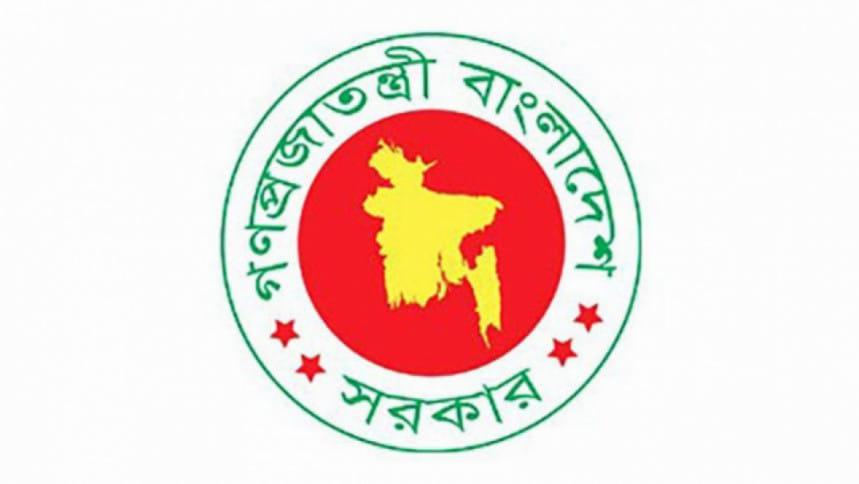
Bangladesh's public expenditure is not growing in keeping pace with the steadily expanding economy as it struggles to raise adequate revenues, thus failing to ensure full implementation of development programmes and provide expected services to its citizens.
The country's public expenditure was Tk 518,191 crore in the fiscal year of 2021-22, accounting for 13.05 per cent of the gross domestic product, a measure of final goods and services in an economy during a certain period of time.
During the current fiscal year, the government targets to spend Tk 678,064 crore, but it is unlikely to reach the goal amid a sluggish pace of execution of the Annual Development Programme (ADP). As a result, the development budget has been slashed from the original one.
Analysts say Bangladesh's public expenditure has been suffering from low implementation for years owing to a lack of the implementation capacity of government agencies and a lower-than-required revenue collection, particularly by the National Board of Revenue (NBR).
Bangladesh ranked 137th among 143 economies in terms of public expenditure in 2021, according to the International Monetary Fund. Kiribati, an island nation in Oceania, had the highest public expenditure at 127 per cent while Bangladesh spent 12.97 per cent of its GDP.
Bangladesh's expenditure was lower than that of India and Pakistan, according to IMF data compiled by the Centre for Policy Dialogue (CPD), a local think-tank.
Analysts say an increase in public expenditure or national budget – both development and operational – is necessary for the government to expand public services for its citizens.
"The size of the national budget needs to be enhanced," said AB Mirza Azizul Islam, a former finance adviser to a caretaker government.
"There are many sectors such as health, education, infrastructure and social protection where public investments have to be increased as the private sector will not come here."
But at the same time, he said, the budget deficit should be kept within 6 per cent of the GDP.
One of the barriers to increasing public expenditure is low revenue collection in comparison to the size of the economy estimated at $453 billion in 2022-23.
Nepal has a higher revenue-GDP ratio than Bangladesh although the former's per capita GDP is lower than the latter.
"Many people who have taxable income neither come under the tax net nor they are brought into the tax net," said the adviser.
Islam pointed out that there is a problem of competence among revenue officials and corruption is an issue as well.
"The main problem lies in the implementation of tax laws properly where the issues of competence and corruption come."
Mustafizur Rahman, a distinguished fellow at the CPD, said public expenditure is low in view of Bangladesh's development needs.
"The main drawback is resource mobilisation and implementation. We can't collect the required amount of tax and ensure quality spending. The implication of this is that citizens are getting inadequate public services."
"This also undermines private investment and affects economic growth and employment. The delay in implementation of public investments also contributes to inequality."
CPD Senior Research Fellow Towfiqul Islam Khan said as the public expenditure is low in Bangladesh, the recurrent expenditure of running the government might be met, but public investment in the much-needed areas remains low.
"Hence, investments in the social sectors in Bangladesh such as health, education and social protection have remained the lowest in the world."
He said the inability to mobilise domestic revenue is often blamed.
"But it is also true that the government, on a continuous basis, could spend much less than the budgeted amount and the budget deficit as a percentage of GDP has remained lower than the programmed limits over the years. Indeed, the institutional deficit of the government in implementing the budget is exposed."
"The quality of public expenditure and value for money are often undermined due to the deficit in good governance."
Data from the Implementation Monitoring and Evaluation Division under the planning ministry showed that the government's ADP expenditure was Tk 203,648 crore in 2021-22, constituting 5.13 per cent of GDP.
Zahid Hussain, a former lead economist at the World Bank's Dhaka office, however, thinks increasing the budget size for the sake of raising is not rationale unless service deliveries are ensured.
"Traditionally, revenue collection and project implementation capacity have been low. But unless you fix the problem of public investment management, corruption and implementation capacity, raising public expenditure will not be helpful."

 For all latest news, follow The Daily Star's Google News channel.
For all latest news, follow The Daily Star's Google News channel. 

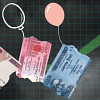
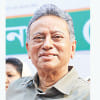
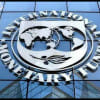
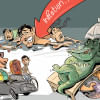



Comments